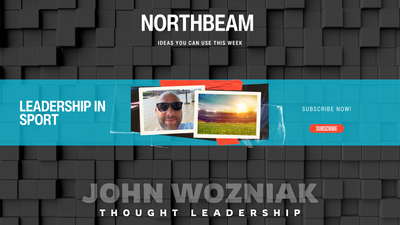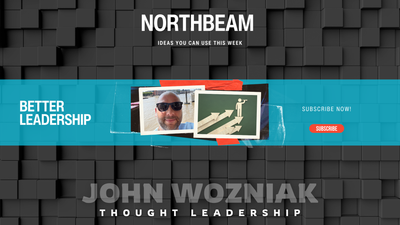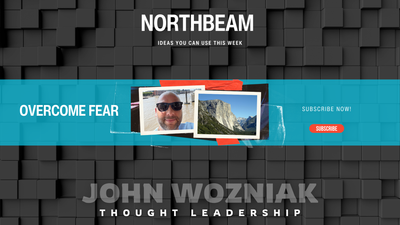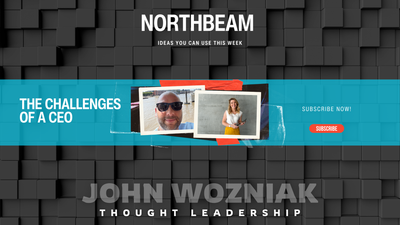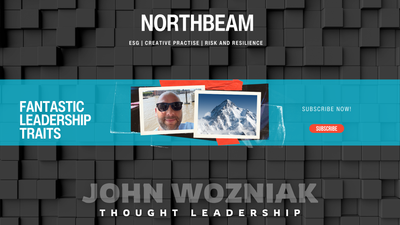Stay Focused, Get Organised, Do Better
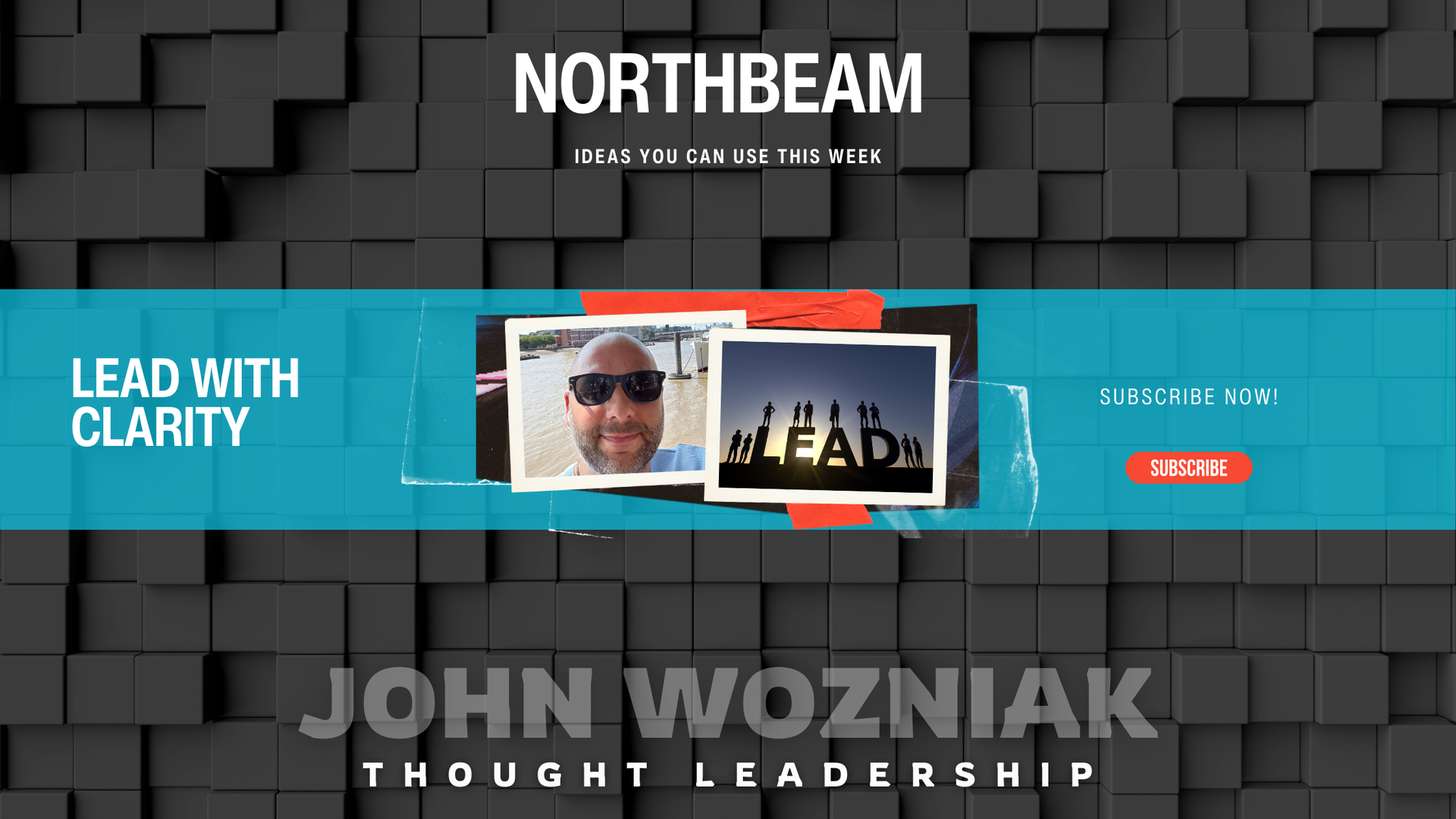
Why preparation beats panic every time
Even the best people get things wrong. That’s why reflection matters. Three simple questions 'what went well, what went wrong, and what could I do differently?' can reset the next day before it even begins.
How many times this week have you seen someone flustered?
The colleague rifling through emails two minutes before a meeting. The parent tearing through the shops for school uniforms days before term starts. The driver swerving in traffic because they left home late.
Getting organised is not about colour-coded folders or a spotless desk. It’s about focus. In both work and life, the ability to pause, prepare, and plan a few steps ahead is the difference between chasing your tail and moving with calm purpose.
It happens everywhere. The cost of disorganisation is higher than we like to admit.
Last week we talked about time management. But managing time is only half the game, if you aren’t organised, the hours still slip through your fingers.
A lesson from the sea (and the Army)
Pete Goss, a former Royal Marine Commando, once sailed solo around the world. On one leg of the voyage, a forty-foot wave crashed over his yacht. Cooking oil and seawater swamped everything he owned. For most people, that’s disaster. But Pete had rehearsed every scenario. He knew where the emergency kit was, he knew the drills, and he had built resilience into his routine. Preparation saved him.
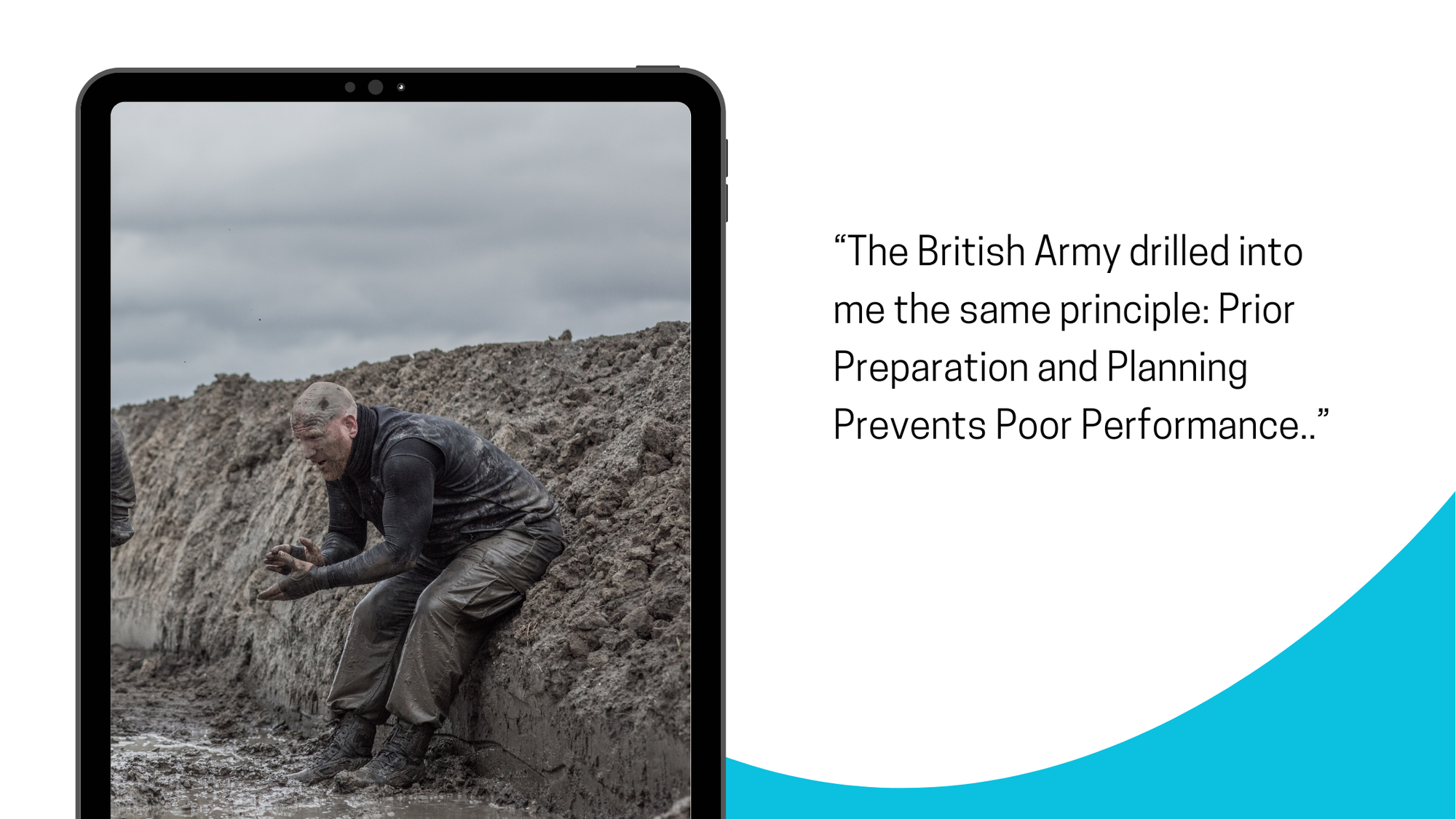
The British Army drilled into me the same principle: Prior Preparation and Planning Prevents Poor Performance. The 7 Ps. Ignore them and you pay later. In uniform, it could be life or death. In everyday life, it might be the difference between a calm start and a wasted day.
I’ll be honest, when I was younger, I’ve fallen short plenty of times. Last minute packing before a deployment, or not paying attention to what my body was telling me. The lesson isn’t perfection. It’s to reflect, adjust, and do better next time.
Reflection is Where Progress Happens
Even the best people get things wrong. What matters is how we respond. Three simple questions can turn mistakes into lessons:
- What went well?
- What went wrong?
- What could I do differently?
Answering these at the end of a day or week is powerful. It’s not about judgement, it’s about clarity.
The Stoic emperor Marcus Aurelius had his own method “the view from above.” He imagined looking down at his life from above the earth, shrinking problems into perspective. It’s a reminder that most of what flusters us isn’t as serious as it feels in the moment.
Chaos Versus Calm
Think about two types of people.
- One scrambles for lost notes, misses deadlines, and blames bad luck.
- The other takes ten minutes the night before to lay things out. They start calm, and that calm spreads.
Which one would you rather be around? Which one would you rather be?
Preparation is contagious. When you’re focused, others notice. Meetings run smoother. Kids leave the house on time. Energy feels lighter.
👉 Subscribers can download this week’s Leadership Pack, with worksheets on the 7 Ps, the Reflection Questions, and the View from Above exercise.
Subscribe to Northbeam today
Paid readers get the full tools:
✦ Why subscribe?
Weekly, practical frameworks you can actually use.
Full access to the Northbeam archive.
Support the project and keep these lessons going.
👉 Upgrade to a paid plan today and save 10% with an annual subscription.
This Week’s Nortbeam Challenge
Spend ten minutes on Sunday evening doing two things:
Subscribe to continue reading

